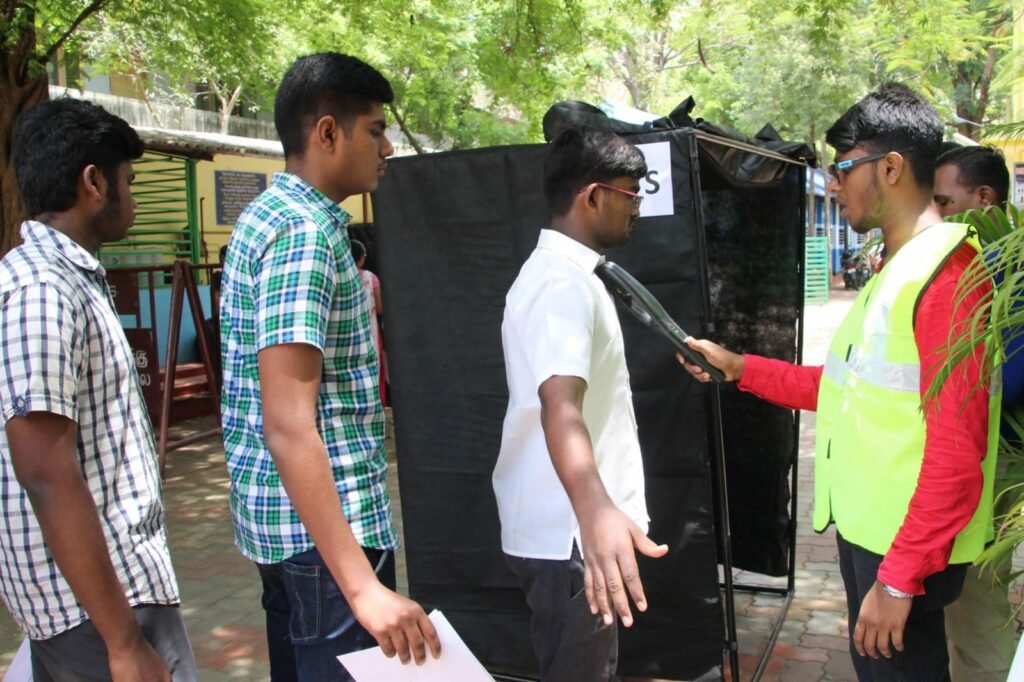The Governor’s letter to the Speaker of the Tamil Nadu Legislative Assembly explaining why he is returning the NEET Bill picked out elements from the AK Rajan Panel report that formed the basis of the legislation.
The Governor has cited the following from the Rajan panel report: NEET was directionless, anti-merit, that it enables poor performers to get admission, discourages higher order thinking and so on. It quotes the report as saying too much stress on Physics, Chemistry and Biology takes focus away from general proficiency. These, on the face of things, appear to be ridiculous assertions but the panel does explain the reasoning.
The report says that since coaching is nearly essential to pass NEET, it allows candidates who may not be that skilled to pass because they could afford the coaching fee. The Governor has asked if coaching is not taken by Class 12 students to do better.
Where the panel report scores is presenting convincing statistics on how NEET has made students shift away from affordable government and Tamil medium schools. The shift is pronounced in science and pure science groups. There is a sudden move away from state board syllabus towards CBSE in medical admissions that inevitably means more expensive schools.
The statistics show how second- or third-time attempts dominate NEET passes, which means years dedicated to attending coaching classes after Class 12. It shows how parental income of students getting admission after NEET is higher, which directly means poorer students are not able to get in. Less developed districts are sending fewer students to medical colleges – another indication of the skew that NEET has brought. There has been a drastic increase in percentage of urban students, steep fall in first-generation graduate aspirants getting medical admission. In open competition seats, forward caste groups are doing much better now. The panel report commends 7.5% reservation for government school students but asks that the demographics of these students should be studied to see if there is any skew away from socially and economically backward students.
Where the panel report scores is presenting convincing statistics on how NEET has made students shift away from affordable government and Tamil medium schools. The shift is pronounced in science and pure science groups. There is a sudden move away from state board syllabus towards CBSE in medical admissions that inevitably means more expensive schools.
In light of these findings, the Governor’s reasoning for sending back the Bill saying social justice aspects have been taken care of by NEET does not really hold water. He has merely quoted the Supreme Court reading of Constitutional provisions without going into how they have turned out in practice. He has cherry-picked statements from the panel report that look ridiculous at face value but have been well-substantiated by the panel report.
Here are a few areas where the Rajan panel has fallen short. Just as the Governor pointed out, the panel report simply refuses to go into why so few government school students were getting admission before NEET in any case. This actually puts a major question mark over how the previous system could be defended when attending private schools and possibly coaching classes was the sure way of getting medical admission even in the past. Where was social justice then?
Exceptions were indeed there and inmathi.com has catalogued heroic efforts by poor students studying in Tamil medium government schools to become doctors. It goes without saying that while those doctors, once graduated and become oriented, could aspire to pass NEET PG, they would not have passed NEET.
The Rajan panel report imagines a highly idealized classroom assessment that simply does not exist and will not happen unless a revolution in public education happens in India
The panel report is in the form of an argument that attacks NEET in all ways possible. It tackles in length the idea of common entrance exams, recapping old debates in other countries about such exams. It asks if syllabus-based testing is enough, if a one-off exam is correct, and if school system with continuous assessment and so on is not better. But the truth is that the Class 12 exam alternative was anything but ideal and might even have been worse than NEET. The previous system too was based on a one-off test. The Supreme Court has observed that NEET is a first step and improvements can happen.
The Rajan panel report imagines a highly idealized classroom assessment that simply does not exist and will not happen unless a revolution in public education happens in India. It talks about how overall assessment of students is better than just Physics, Chemistry and Biology. The report does so since its intent is preset and presents an argument in polemical style. And the Governor, a combative ex-intelligence official, has picked on them to present his case.
There has been a drastic increase in percentage of urban students, steep fall in first-generation graduate aspirants getting medical admission. In open competition seats, forward caste groups are doing much better now.
On the whole, however, the DMK is right in pointing out that in our federal system, the Governor should not seek to be an active stakeholder in policy issues who is publicly taking a contentious stand against the elected state government.
While the Rajan panel report anecdotally talks about costly medical college seats now going to NEET passes with low ranks, what was happening earlier was rampant, uncontrolled capitation fee. The report does not honestly address the question of commercialization of medical education and whether there can be alternatives. While arguing against NEET, it hasn’t quite addressed the reasoning by courts in bringing in NEET.
The report lists several positive feedback for NEET but doesn’t really go into the merits of those positives cited.
The AK Rajan panel report is a polemical argument such as made in a court with the outcome prejudged.
